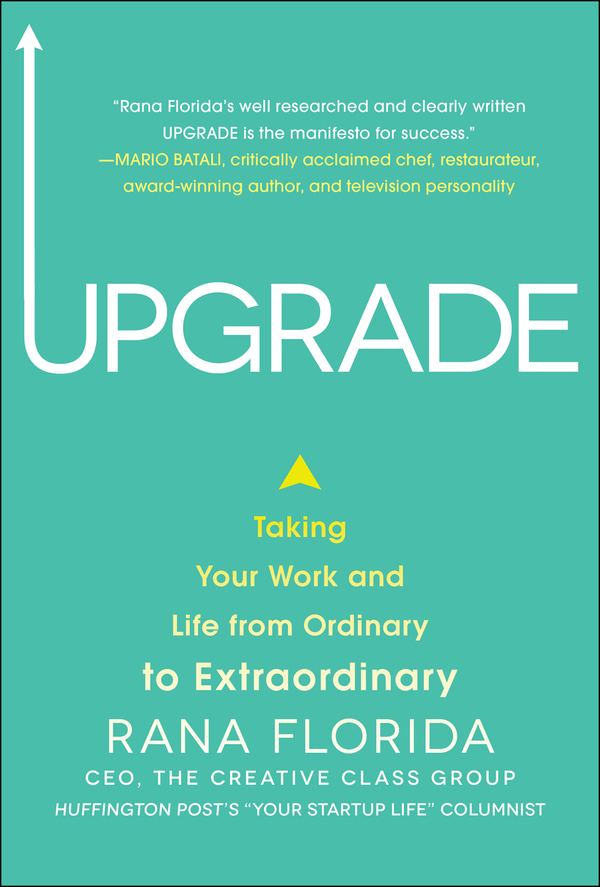For most people, assessing and accepting risk takes a severe emotional toll; it causes fear and confusion and it can lead to stress and fatigue. Life is already risky, many of us think -- why 'rock the boat?' But most successful leaders, thinkers and innovators understand that new opportunities and rewards come only after taking risks. Facebook's motto is "Move fast and break things," meaning, it's okay to take a chance on several things at once. But the harsh reality is that most of us are not rewarded at work for taking risks.
Curiosity is stifled in a risk-free environment. If workers are afraid of getting laughed at for their ridiculous ideas, any number of important inventions won't ever see the light of day. Our society and workplaces need to encourage more risk-taking. Innovative leaders understand that not every risk yields success but they also don't reprimand their teams for taking risks. They encourage them to think their ideas through and assess their potential consequences.
Not long ago, I listened to a BBC story about artisanal food producers in Brooklyn, among them a chemist who sells gourmet beverages to high-end bars, a maker of exotic teas who financed his start-up with a small inheritance from his grandfather and promptly landed a contract with Whole Foods, and many others. Most of them introduced their products in stalls at the Brooklyn Flea, a weekly market in downtown Brooklyn that features locally made craft beers and artisanal foods as well as antiques and vintage clothes. As these tiny companies gain traction, many of them have moved into the old Pfizer factory near the Brooklyn Navy Yard, a 660,000-square-foot space where thousands once worked.
One of those companies is People's Pops, which was founded by Joel Horowitz, Nathalie Jordi and David Carrell with an initial investment of $1,000 each. They make gourmet frozen pops and shave ices that are flavored with local, sustainably grown fruits and herbs.
With 25 employees, People's Pops makes and sells some 10,000 pops a week. All three of the partners worked other jobs while they were launching the company; none of them had a great deal of experience. They had a steep learning curve, one of the founders noted, and they learned some of their most valuable lessons by making mistakes. "Making mistakes has been the most important thing we've done," one of the partners told the interviewer.
Humans learn by trial and error, starting when they are developing their motor skills at a very early age. Experimentation and investigation in various methods are tried until the desired result is achieved. Sometimes, like Edison trying the different filaments in the incandescent light bulb, it takes a long time but has a big payoff. Sometimes it turns out to be a dead end.
It's surprising to me how few organizations encourage risk taking and foster a culture of outside-the box thinking. We are taught to set goals, achieve measurable results and assess success. But we are rarely encouraged to push the boundaries of new ideas and pioneering thoughts.
Workers keep their heads down, tending to focus more on what might go wrong and what might be lost or punished. They're afraid to take risks as they may lead to failure and they want to keep their jobs. Risk is not something that is embraced at the workplace.
It hurts them more than they know. "Traditional creative organizations can be quite hierarchical, but this is a hard idea to scale, especially if you want to work on a diverse range of projects," Tim Brown, the CEO of the design consultancy IDEO told me. "We have tried to create an organizational culture where every individual is comfortable taking risks and exploring new ideas, but where they are also fixated on helping improve the quality of each other's ideas."
Peter Sims, author of Little Bets says, "Amazon, Pixar, Apple and to a lesser extent Toyota, 3M and Google have little bets infused into their cultural DNA. Steve Jobs has evangelized about the benefits of the approach described in Little Bets more than any other CEO, while little bets are a way of life at Amazon, whether the company is expanding into new markets or improving internal processes. And, I wrote a lot about Pixar because it's the closest thing to a constant learning organization using little bets around today. But any company or team can make use of little bets. Procter & Gamble is an example of a more risk-averse organization that is working to build a culture of little bets."
Whether we are a leader of an organization or a worker, anyone of us, Sims advises should commit to making little bets. "Look for interesting problems and work toward larger aspirations. Once you get into the habit of making little bets, they can constantly open up new possibilities that just might lead to something big."

